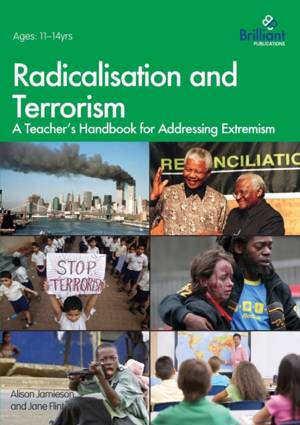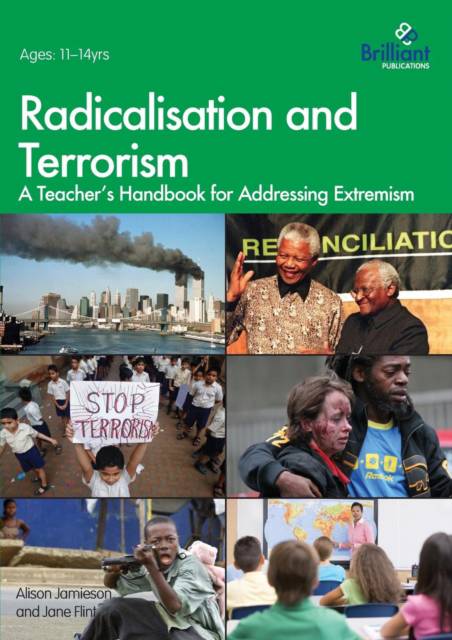
- Afhalen na 1 uur in een winkel met voorraad
- Gratis thuislevering in België vanaf € 30
- Ruim aanbod met 7 miljoen producten
- Afhalen na 1 uur in een winkel met voorraad
- Gratis thuislevering in België vanaf € 30
- Ruim aanbod met 7 miljoen producten
Zoeken
Radicalisation and Terrorism
A Teacher's Handbook for Addressing Extremism
Alison Jamieson, Jane Flint
Paperback | Engels
€ 27,95
+ 55 punten
Omschrijving
As the increasingly frequent press stories of school children being radicalised show, teachers urgently need a resource that enables them to recognise, debate and disrupt extremist narratives within the context of the classroom. This practical handbook provides a reliable and objective resource to enable lower secondary school teachers to tackle the complex subjects of terrorism and radicalisation with confidence. It sets political violence within a broad context of perceived injustice, using familiar emotions of anger and disappointment to introduce the notion of grievance, a precursor of all forms of terrorism. The text covers issues of citizenship, human rights and respect, civil and political engagement, the nature of identity and how we identify with others. It examines different forms of violence from bullying to the most recent examples of 21st century terrorism. Historical precedent is used to illustrate a variety of contexts in which political violence has occurred, from Assassins through Suffragettes to militancy in South Africa, Europe, the Middle East and Oceania. The handbook considers the causes and consequences of terrorism and helps teachers to explain to children what terrorists do and why they do it; how to differentiate between the reasons, goals and methods of terrorists; why the media and terrorism are inextricably linked; what makes terrorism start and, crucially, what factors bring a cycle of terrorism to an end. Pupils are invited to reflect on the destructiveness of terrorism for both victims and aggressors and, taking Northern Ireland and South Africa as examples, to consider the process of reconciliation.
Specificaties
Betrokkenen
- Auteur(s):
- Uitgeverij:
Inhoud
- Aantal bladzijden:
- 128
- Taal:
- Engels
Eigenschappen
- Productcode (EAN):
- 9781783171828
- Verschijningsdatum:
- 13/08/2015
- Uitvoering:
- Paperback
- Formaat:
- Trade paperback (VS)
- Afmetingen:
- 210 mm x 297 mm
- Gewicht:
- 326 g

Alleen bij Standaard Boekhandel
+ 55 punten op je klantenkaart van Standaard Boekhandel
Beoordelingen
We publiceren alleen reviews die voldoen aan de voorwaarden voor reviews. Bekijk onze voorwaarden voor reviews.











